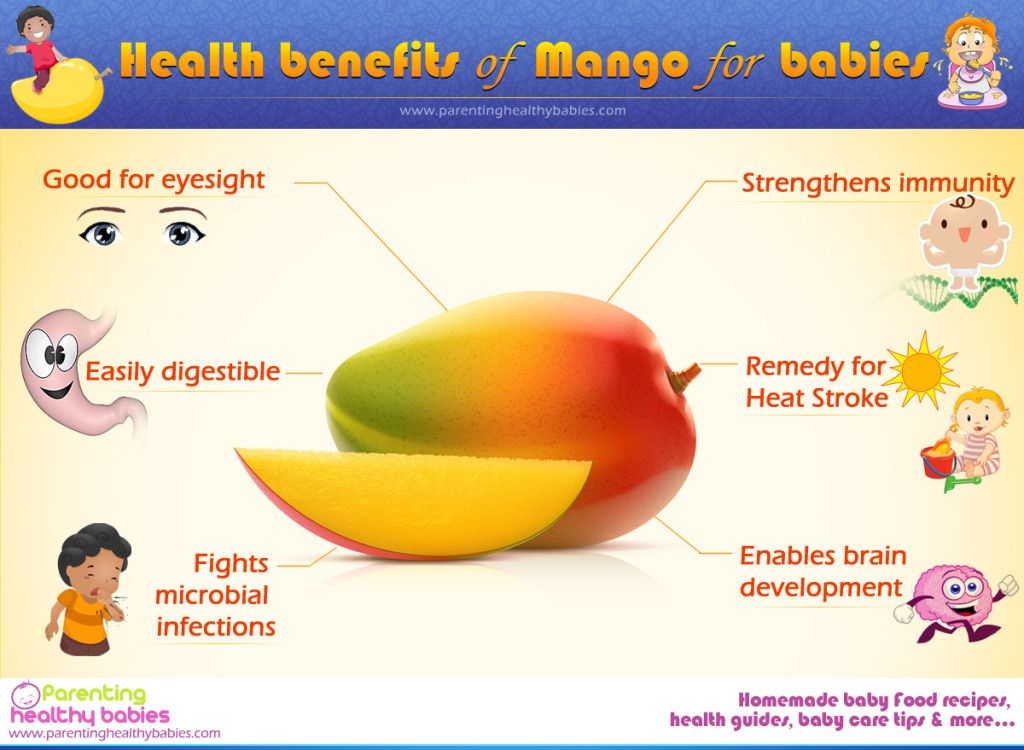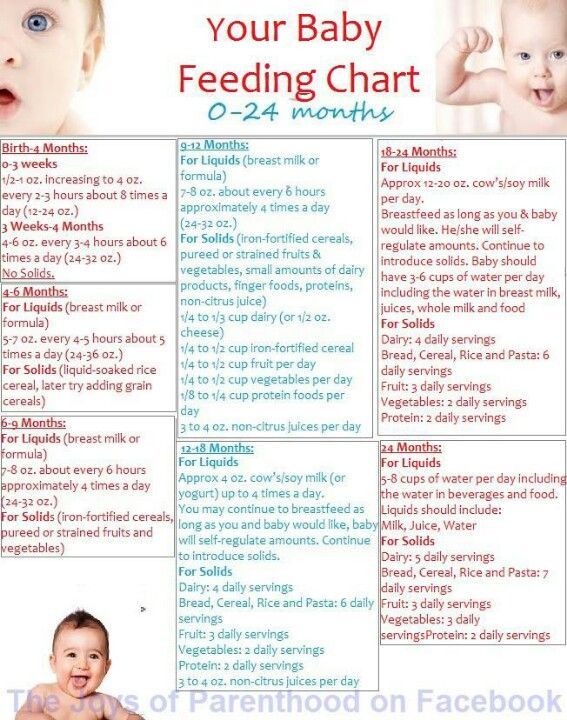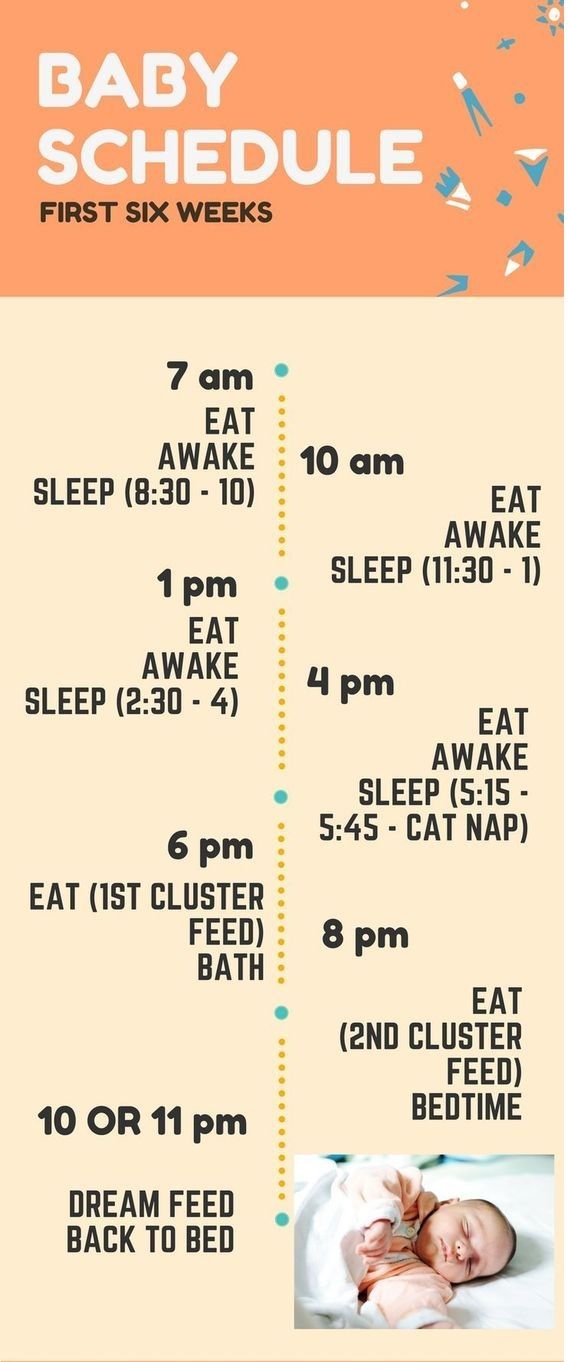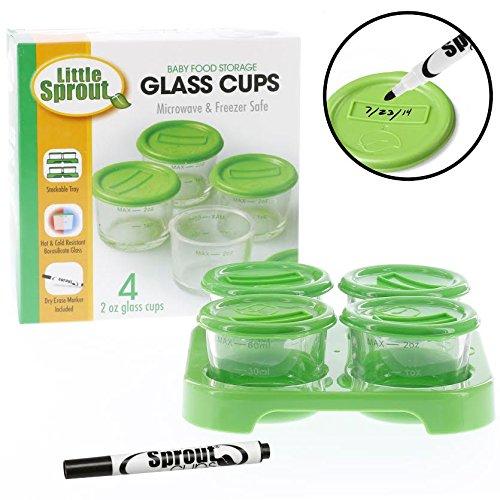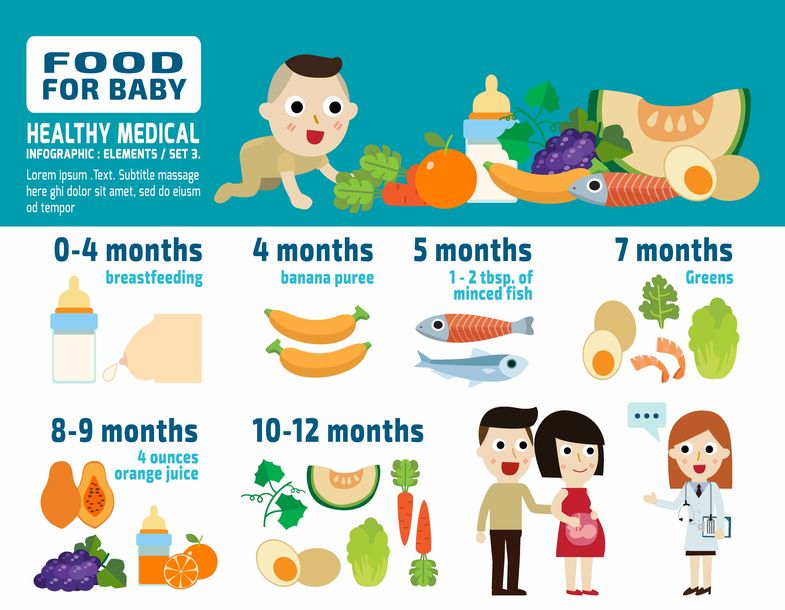Easily digestible food for babies
Food For 6-8 Month Old Babies | Introducing Solids
These tips are brought to you by
Signs my baby is ready for solids?What if my baby refuses solid food?What about allergic reactions?Preparing food for babyBe prepared for mess!How to prevent your baby from chokingTop Tips
It is recommended that you start your baby on solids at around six months of age while continuing to breastfeed until twelve months or longer. At this age small amounts of cooled boiled water may also be offered in a cup.
It is recommended that you start your baby on solids at around six months of age while continuing to breastfeed until twelve months or longer. At this age small amounts of cooled boiled water may also be offered in a cup.
Signs my baby is ready for solids?
- From six months of age it is recommended to introduce your baby to solids.
- Your baby should be sitting up straight and have good head, neck and shoulder control by this time.
- Signs of readiness: an increased appetite; your baby is asking for more frequent milk feeds, showing more hand to mouth behaviour, showing interest in food, including the food on your plate.
Some babies will prefer to start with soft foods (mashed or grated) from a spoon and others will prefer to start with soft finger food. There is no set order for the best baby food to be introduced but it is strongly recommended that foods which include iron are included in the healthy diet.
Start with offering mashed foods that are easily digested which may include:
- vegetables (eg pumpkin, potato, sweet potato, taro) fruits (eg cooked pears/apple, ripe banana)
- well cooked rice or iron enriched rice cereal.
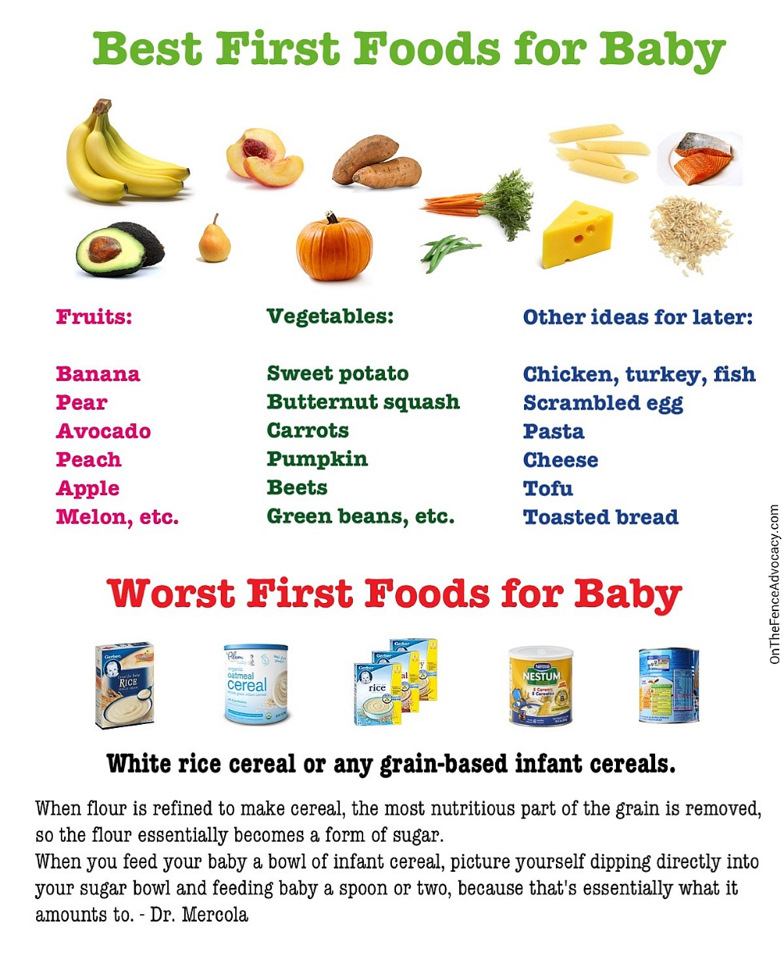
- coarsely mashed fruit and vegetables,
- well cooked: minced, stewed or grated meat (cook, freeze then grate)
- fish – bones removed
- legumes (eg lentils)
- pasta and bread (e.g. toast fingers and rusks)
Many babies will only eat a tiny amount to start with (less than ½ teaspoon) while other babies may surprise you by wanting more. Let your baby tell you when they are hungry and full. For example as they get full they don't show as much interest and may look away more. You can find great baby food recipes here.
What if my baby refuses solid food?
Not all babies are ready to start eating solid foods. Remember the food offered during the first couple of months is about helping your baby to learn new tastes, textures and smells. If baby is continuing to refuse food, try offering solids before giving the milk feed, when you are both relaxed and your baby is calm and alert, showing obvious signs of hunger.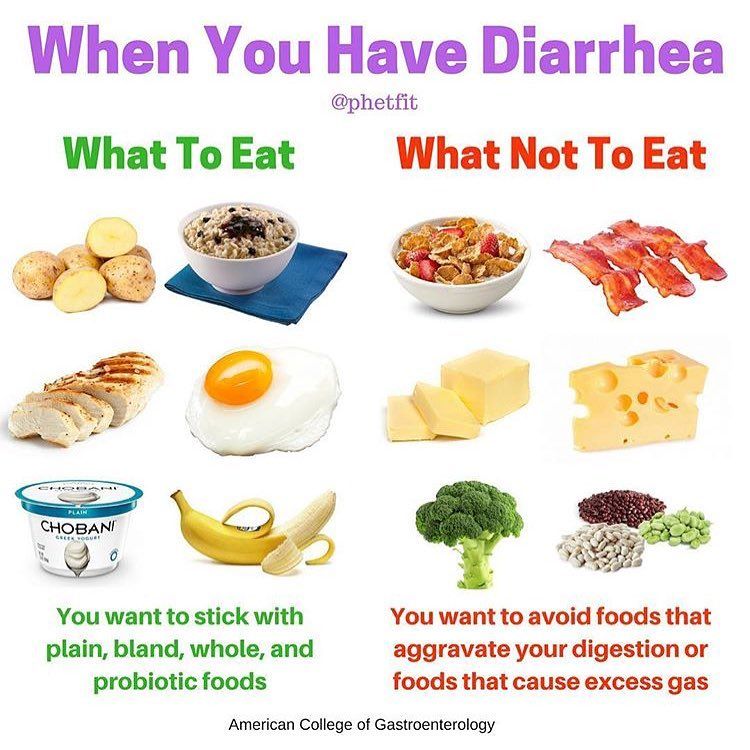 Eating is a social event and the more times you and or your family eat together the more your baby learns to eat & enjoy what the family is eating.
Eating is a social event and the more times you and or your family eat together the more your baby learns to eat & enjoy what the family is eating.
What about allergic reactions?
If allergy is a problem in your family seek advice from your child and family health nurses or doctor about baby allergies before starting solids.
Preparing food for baby
When preparing foods, food safety is important. Always wash your hands before you begin and ensure the area you are using to prepare the food is clean. You can also use different coloured boards for food types: one each for chopping meats, fruits and vegetables. If you’re using a microwave oven to heat baby’s food, always stir food thoroughly before serving, and check the temperature.
Be prepared for mess!
- Playing with food is your baby’s way of exploring new textures and learning to eat family foods
- To help your baby learn to eat different tastes and textures it is important for your baby to practice by offering a variety of foods in different sizes and texture
- Babies very quickly like to help feed themselves, so give them a spoon to hold from the start
How to prevent your baby from choking
- Always remaining with your baby while they are eating
- Using a safety harness when your baby is in a high chair or low chair to prevent your baby from moving around whilst eating
- Avoiding giving nuts, small hard foods (such as raw or undercooked pieces of hard fruit and vegetables, popcorn, rice cakes and cocktail frankfurts) and small slippery foods (such as whole grapes and whole cherry tomatoes)
TOP TIPS
- Until twelve months cow’s milk should only be used in small amounts to mix with family foods and in cooking
- Avoid nutrient poor foods with high levels of saturated fat, sugar, or salt (e.
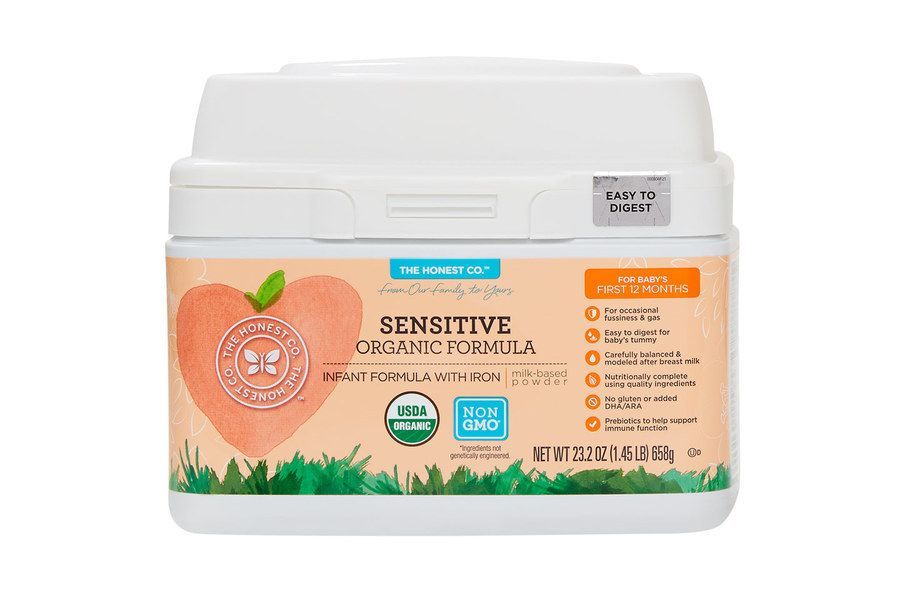 g. cakes, biscuits, confectionery and potato chips).
g. cakes, biscuits, confectionery and potato chips).
- If possible try and feed your baby with the rest of the family. Your baby will soon learn that meal times are not just about food but also about social interaction.
Foods That Help Regulate Digestion for Babies | Healthy Eating
By Andra Picincu Updated December 06, 2018
Tummy pain, vomiting, constipation and acid reflux affect most babies in their first months of life. It's not uncommon to see newborns who are spitting up large amounts of milk or choking during feedings. Colic and diarrhea are common too. As a parent, it's your responsibility to keep your baby healthy and make sure he receives the nutrients needed for optimum growth. Certain foods aid in digestion and can improve your child's ability to absorb nutrients.
Breast Milk
Experts recommend breastfeeding for up to six months.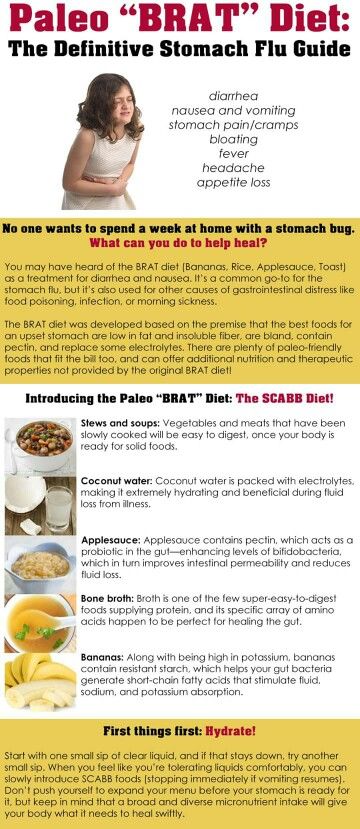 Breast milk provides your baby with the energy and nutrients he needs to grow strong and healthy. It also supports brain development, improves cognition and protects against infections.
Breast milk provides your baby with the energy and nutrients he needs to grow strong and healthy. It also supports brain development, improves cognition and protects against infections.
Studies indicate that respiratory problems, asthma, allergies and diarrhea are less common in babies fed with breast milk. Additionally, breastfeeding has been linked to better overall health and higher IQ scores. The proteins in this superfood are easier to digest and better tolerated compared to infant formula.
Beneficial Bananas
As your baby grows, you can slowly introduce him to solid foods. Bananas are particularly beneficial for his tummy. These naturally sweet fruits boast large amounts of fiber, leading to better digestion. They can help with diarrhea and constipation, balance gut flora and increase satiety.
Bananas also boast anti-inflammatory, antiviral and antibacterial properties. Therefore, they can protect your baby against germs and infections. Plus, they're rich in pectin, a type of fiber that regulates digestion and promotes regularity. Tryptophan, an amino acid found in these fruits, improves sleep and relaxes the body.
Plus, they're rich in pectin, a type of fiber that regulates digestion and promotes regularity. Tryptophan, an amino acid found in these fruits, improves sleep and relaxes the body.
Broccoli for Babies
Packed with calcium, folate and antioxidants, broccoli is one of the healthiest foods for babies. This cruciferous veggie helps restore gut flora and decreases inflammation in the GI tract. Due to its high fiber content, it relieves constipation and supports digestive health. Furthermore, it boosts gut bacteria, leading to a stronger immune system and improved nutrient absorption.
Refrain from giving too much broccoli to your baby. When consumed in large amounts, this vegetable may cause bloating and gas. Ideally, use pureed broccoli, which is easier to digest.
Yogurt – Preferably Plain
Rich in probiotics, yogurt is easy to digest and helps intestinal flora.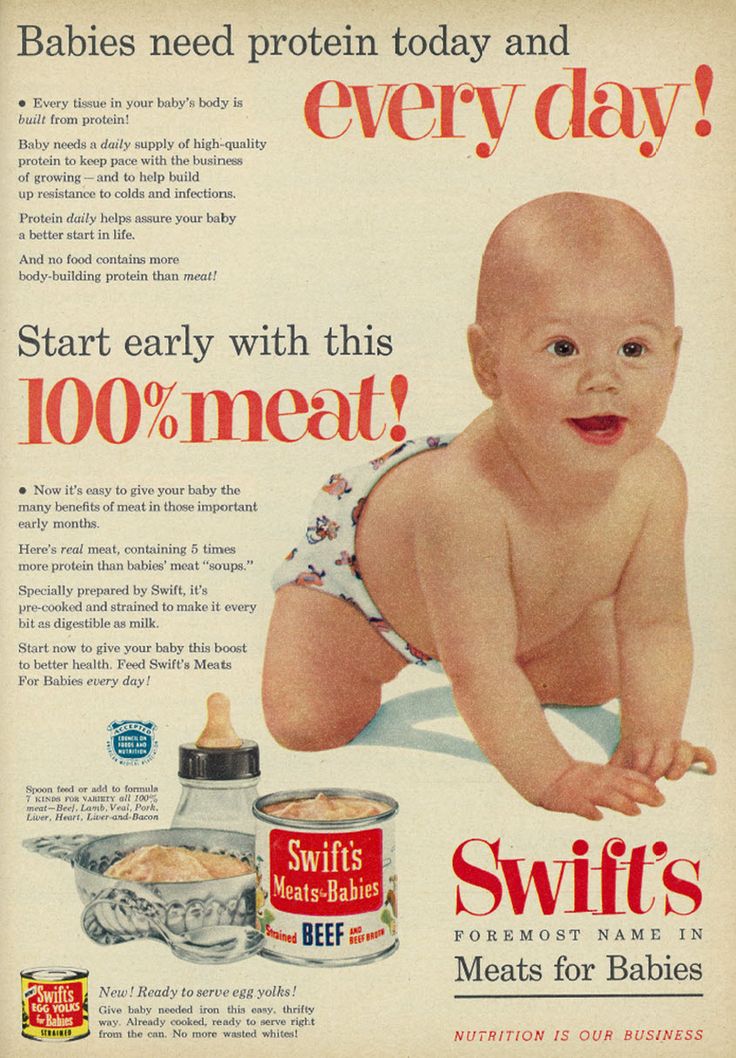 Most brands contain Bifidobacterium lactis and Lactobacillus acidophilus, two bacterial species that repopulate the gut and improve digestive function. The microorganisms living in the gut play a key role in metabolism, immunity, brain health, body composition and much more.
Most brands contain Bifidobacterium lactis and Lactobacillus acidophilus, two bacterial species that repopulate the gut and improve digestive function. The microorganisms living in the gut play a key role in metabolism, immunity, brain health, body composition and much more.
Unless your baby is allergic to dairy, yogurt is a safe, healthy choice. Plus, it's lower in lactose than milk. In addition to probiotics, it contains calcium, protein, vitamin D and other nutrients. Your child needs calcium for bone growth and development. Vitamin D improves calcium absorption and enhances immune function.
Opt for plain yogurt and avoid flavored varieties. Fruit yogurts may contain added sugar, preservatives and synthetic dyes that affect overall health in the long run. A good choice is Greek yogurt, which boasts more protein than its conventional counterpart.
These are just a few of the many foods that promote digestive health in babies. Your child can also eat avocado, infant cereals, skinless apples, prunes and pureed vegetables.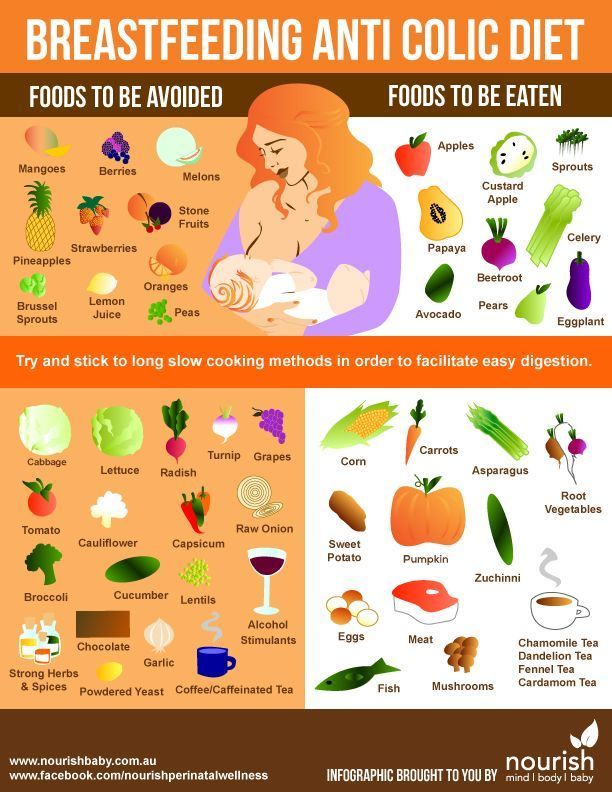 Another healthy option is pineapple, which contains bromelain, an enzyme that regulates digestion and prevents bloating. Nuts, seeds, peanut butter, popcorn, citrus fruits and chocolate may cause an upset stomach, so it's better to avoid them.
Another healthy option is pineapple, which contains bromelain, an enzyme that regulates digestion and prevents bloating. Nuts, seeds, peanut butter, popcorn, citrus fruits and chocolate may cause an upset stomach, so it's better to avoid them.
Nutrition of children in the postoperative period
Any surgical intervention is a serious stress. Traumatic damage to the child's body (regardless of the cause) provokes rapid negative changes in vital functions, which over the next few hours, progressing, become life-threatening and require urgent intensive care. In critical conditions, energy costs increase sharply (by 50-150%), which are covered by the supply of nutrients in the human body (proteins, fats, carbohydrates, microelements). nine0003
Increased energy expenditure reduces the supply of these nutrients, which must be compensated by adequate nutrition. An acute deficiency of nutrients and energy leads to a worsening of the condition, makes the child's body susceptible to the development of infectious complications, which leads to an increase in the length of stay in the hospital. The selection of optimal nutrition is the most sparing method for correcting disorders that occur after surgery. nine0003
The selection of optimal nutrition is the most sparing method for correcting disorders that occur after surgery. nine0003
Nutrition in the postoperative period should be high-calorie, rich in vitamins, easily digestible. At the same time, in the first days after the operation, it is necessary to limit nutrition, taking into account the nature of the intervention and the degree of the surgical injury. After operations not related to the digestive organs, children, in most cases, are prescribed a regular common table.
After operations on the digestive organs, when normal food intake is impossible, difficult or contraindicated, the operated child is prescribed a diet that ensures maximum unloading and sparing of the digestive organs, preventing intestinal swelling. The child is fed 6 - 8 times a day. The food consists of liquid and jelly-like dishes (weak broth, rice water with cream, compote, liquid berry jelly, rosehip broth, fruit jelly, tea). The amount of table salt is sharply limited. nine0003
nine0003
Then the diet is gradually expanded and the child is given liquid pureed cereals boiled in water with 1/4 - 1/2 part of milk, slimy cereal soups on vegetable broth, steam protein omelet, steam puree or soufflé from lean meat or fish, jelly, mousse from non-acidic berries, applesauce. Such a diet is prescribed for 2 to 4 days.
After that, the child is prescribed a diet that serves to further expand the diet and transition to a physiologically complete diet. Food is cooked in pureed form, boiled or steamed. The child is allowed: crackers from premium wheat bread, soups-puree from vegetables, cereals, meat, poultry, fish; meat - lean beef, rabbit, skinless chicken; fish - cod, pike perch, pike; steam dishes from cottage cheese, sour-milk drinks; omelets. After that, the child is transferred to a common table. nine0003
However, existing treatment tables do not correspond to modern ideas about the child's needs for many vitamins and minerals; their long-term use reduces the protective properties of the body, the availability of vitamins, disrupts the adequate functioning of the immune system.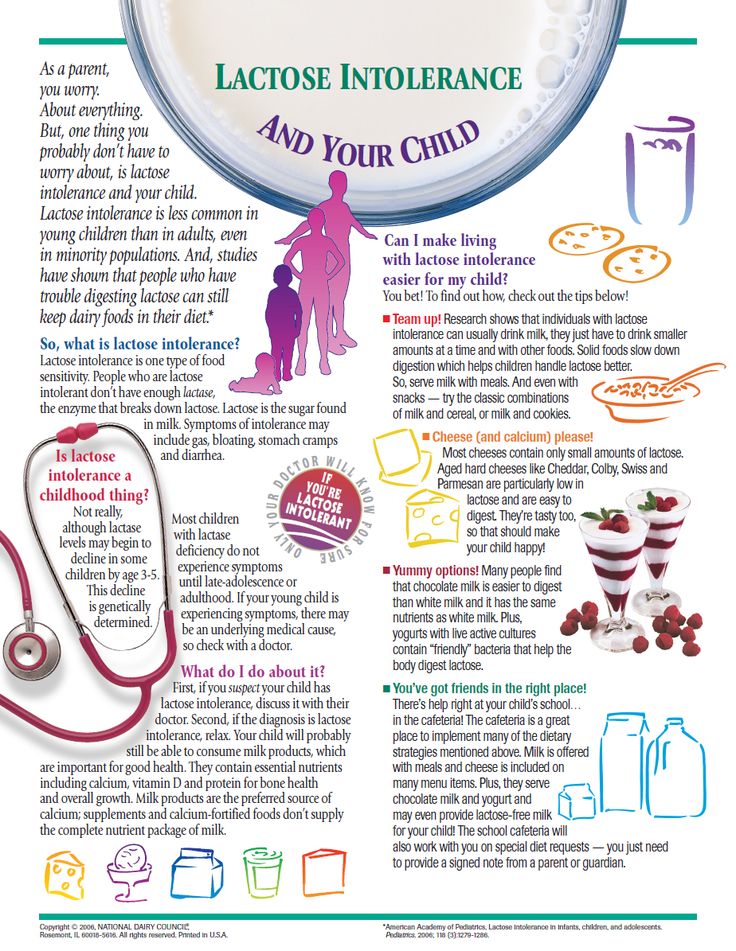 Over the past decade, there has been a sharp increase in interest in the problem of nutritional support for critically ill children.
Over the past decade, there has been a sharp increase in interest in the problem of nutritional support for critically ill children.
Today, for the nutrition of children in serious condition, medicine has all the necessary substances in the form of therapeutic mixtures, which are prepared using a special technology in industrial conditions. These products almost completely allow you to provide a sick child of any age with proteins, fats, carbohydrates, as well as vitamins and minerals; they are hypoallergenic and provide functional rest to the internal organs. nine0003
Formula feeding is considered as part of the treatment of critically ill children and can save the lives of many patients. Optimally selected nutrition contributes to the restoration of altered metabolism, has a protective effect, allows not only to support the needs of a sick child in nutrients, but is also an independent healing factor.
child, diet for a child, how to feed a sick child, diet for a sick child - Children - tsn.
 ua
ua As a rule, during an illness, a child's diet changes. But even after an illness, doctors recommend dieting for a certain period. Tatyana Gnatenko, a pediatric gastroenterologist of the Dobrobut medical network, told us about the peculiarities of nutrition during and after illness.
Diet during illness
Appetite decreases in many illnesses. So the body signals that it can not cope with the usual diet and needs help. Often, parents, on the contrary, try to feed a sick child according to their ideas, with more high-calorie and nutritious food, which can provoke a deterioration in well-being. Even with a common viral infection, the child's diet must change. The diet should be made up of foods familiar to the child, but the volume of servings should be reduced by offering food more often, depending on the child's appetite. nine0003
Easily digestible foods are preferable during illness: cereals, mashed potatoes. At a high temperature, when there is no appetite, drinking comes to the rescue: jelly, non-concentrated compote, rosehip broth.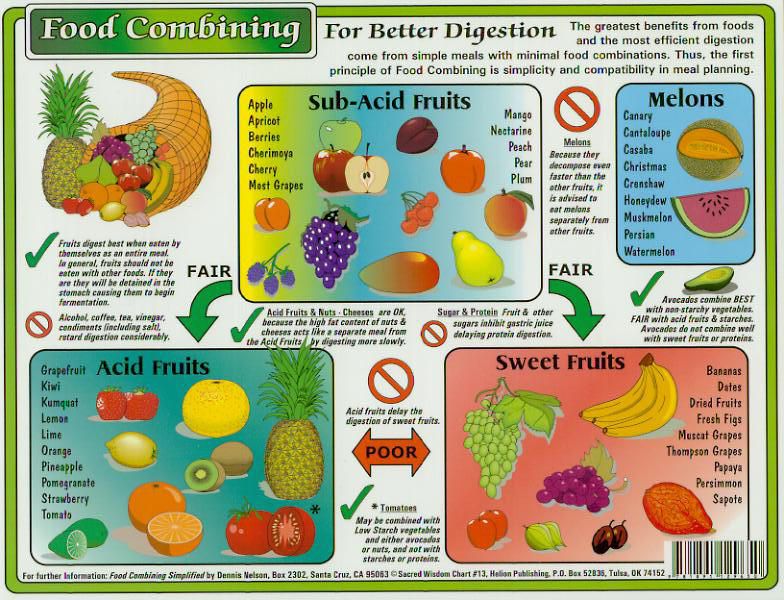 In general, for any illness, it is important to drink enough water. It is recommended to exclude foods that are hard to digest (fried, fatty) and increase gas formation (black bread, legumes, cabbage or beets in large quantities). You can give a light salad or grated apple with carrots in a small amount. nine0003
In general, for any illness, it is important to drink enough water. It is recommended to exclude foods that are hard to digest (fried, fatty) and increase gas formation (black bread, legumes, cabbage or beets in large quantities). You can give a light salad or grated apple with carrots in a small amount. nine0003
If we are dealing with a disease of the gastrointestinal tract, such as an intestinal infection accompanied by vomiting and diarrhea, the dietary requirements are more severe. Food should be offered in small portions, be sure to exclude milk from the diet (for an acute period, remove sour-milk as well). Food should be soft, warm, delicate texture, it can be mashed vegetables with soft fiber (zucchini, potatoes, cauliflower, pumpkin). It is advisable to add well-boiled porridges ("smear"), they will have an enveloping effect (oatmeal, rice, buckwheat). For intestinal disorders, carrot-rice broth is very useful: washed rice and chopped carrots are boiled for 40 minutes to an hour, you can add a little sugar or salt, then the broth is crushed in a blender.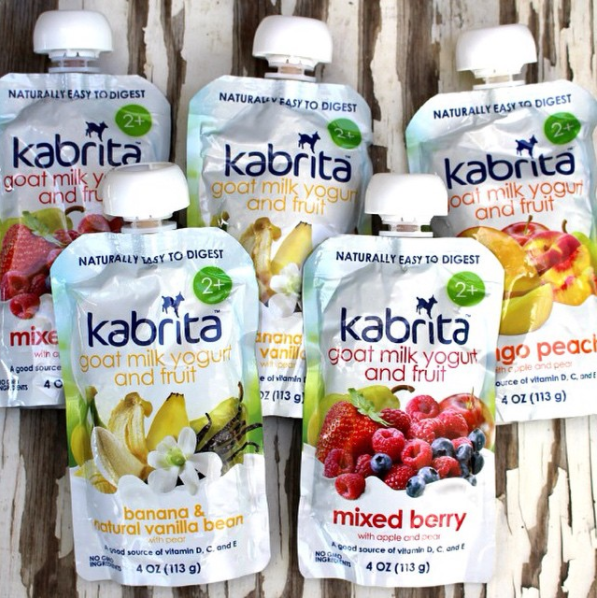 This decoction helps to restore the intestines. Of course, with vomiting and stool disorder, it is necessary to replenish fluid loss with the help of drugs and additional drinking (water, chamomile decoction, weak tea). nine0003
This decoction helps to restore the intestines. Of course, with vomiting and stool disorder, it is necessary to replenish fluid loss with the help of drugs and additional drinking (water, chamomile decoction, weak tea). nine0003
Nutrition after illness
During the convalescence period, it is also recommended to eat sparingly. The period of such a diet will be the same in duration as the period of illness. The diet remains the same as during the illness, but the volume of servings gradually increases. If the child is recovering quickly, you can gradually introduce other products, limiting the consumption of sweets and muffins. Nutritional requirements during the recovery period, with the exception of some situations, are less stringent than during illness. During this time, the child should return to the same diet as before the illness. If before the illness the child had some functional disorders of the gastrointestinal tract, then even a simple viral infection can provoke abdominal pain or stool disorders.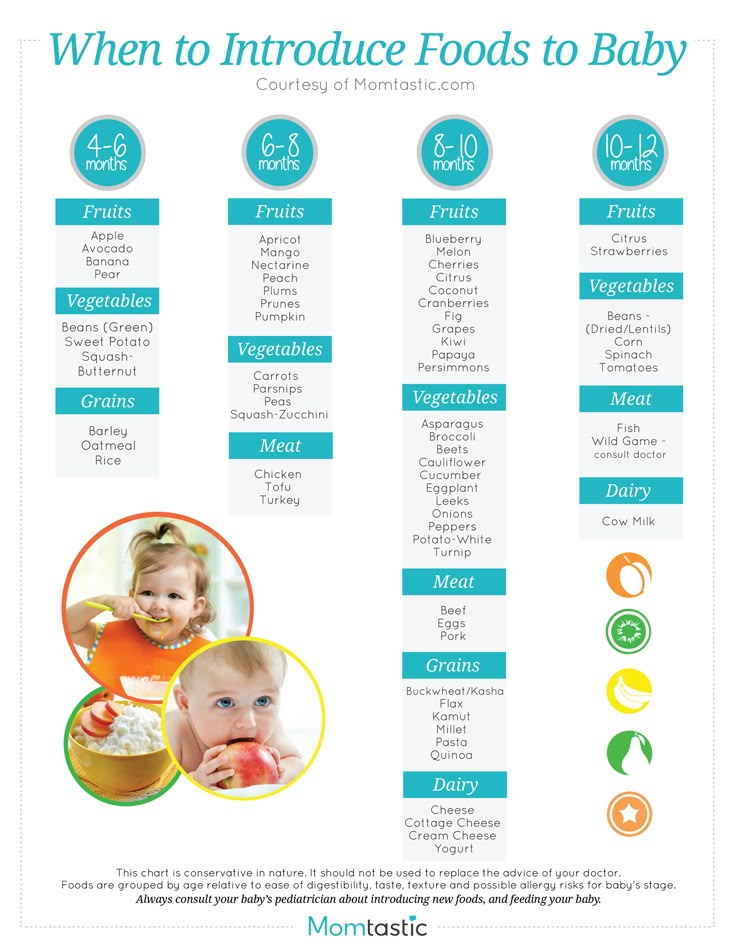 In such cases, you should more carefully adhere to the diet, both during illness and after it. nine0003
In such cases, you should more carefully adhere to the diet, both during illness and after it. nine0003
If the treatment of the disease was accompanied by taking antibiotics, then, as a rule, it is recommended to actively introduce fermented milk products during the recovery period. Especially popular now are sourdough products that you can cook yourself. Depending on the taste of the child, you can ferment different starters, add vegetables and fruits in the form of mashed potatoes and syrup, sugar, vanillin, and make cottage cheese. It is important to know that the starter of the first day weakens the stool more, and on the second and third, on the contrary, it strengthens.
Caution should be taken in the consumption of vegetables and fruits. Fresh vegetables and fruits are prohibited after acute inflammatory diseases of the gastrointestinal tract. In this case, during the recovery period, you can gradually begin to introduce thermally processed vegetables and fruits into the diet, in the form of casseroles, jelly, mousse.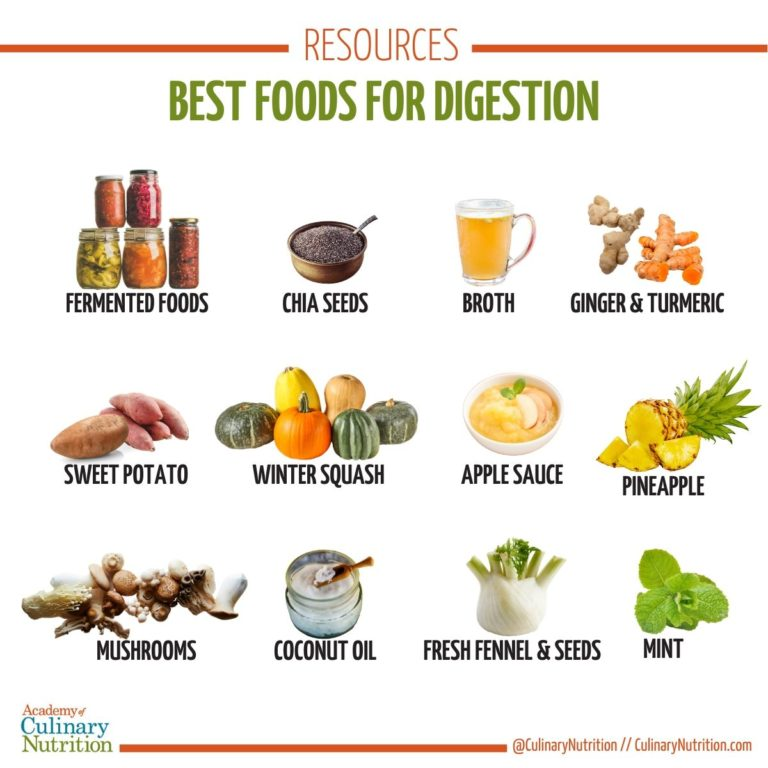 If there is no prohibition on consumption, then before giving the child fresh vegetables, fruits, berries, they should be washed thoroughly, preferably soaked in water for half an hour, and then drained and washed again. nine0003
If there is no prohibition on consumption, then before giving the child fresh vegetables, fruits, berries, they should be washed thoroughly, preferably soaked in water for half an hour, and then drained and washed again. nine0003
A strict diet is necessary in the following situations:
if there is a food intolerance to some foods, then these foods are completely excluded from the diet;
categorically exclude from the diet those foods to which the child has a food allergy, no matter how he asks;
if the child has had a severe intestinal infection or other serious illness, such as gastric and duodenal ulcers.
Are dietary compromises possible?
Few parents adhere to the rules of healthy eating with their child. Often, children are allowed to consume large amounts of sweets, fast food, chips, carbonated drinks, fried and fatty foods. If a child is accustomed to receiving such food, of course, it will be difficult for him to give up "harmful things" during the diet.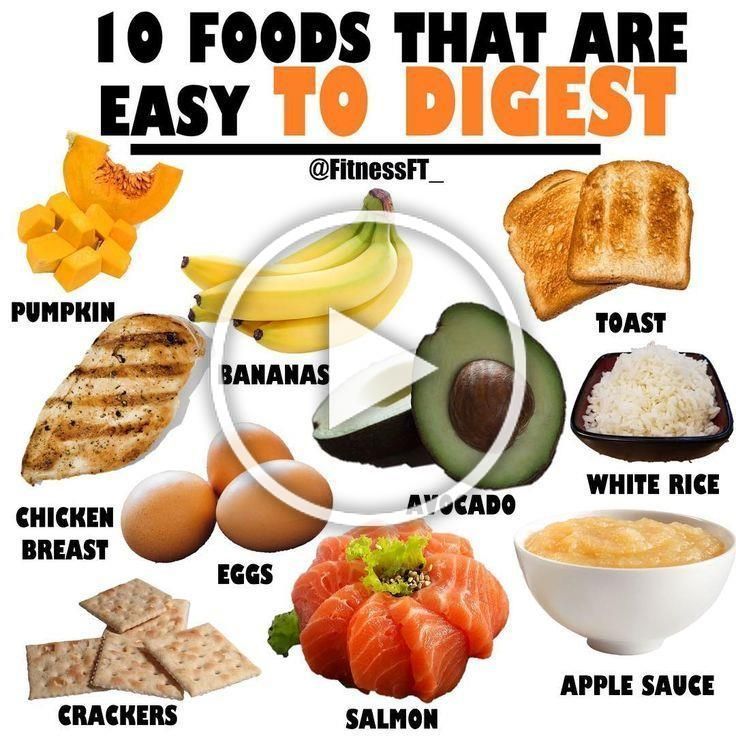 If the situation does not provide for strict adherence to the diet, compromises can be sought, preferably with the attending physician. If a child is already accustomed to receiving sweets, it is difficult to deprive him of pleasure. But this is not necessary. In the diet of the 5th table, the use of fairly harmless sweets is allowed. It can be marmalade without dyes, marshmallows of good quality without dyes, caramel, also of good quality. It is very good if mothers teach children to natural sweets, then sweets can be replaced with dried apricots or raisins. If the child is not allergic, then honey can be an alternative to sweets. You can offer a honeycomb to a child, they can be a useful substitute for chewing gum, while helping to strengthen the gums and teeth. Your child will be better off eating healthy food if you don't feed him "unhealthy" food between meals. If at the same time the child will spend a lot of time outdoors and move, that is, he will be with an appetite. nine0003
If the situation does not provide for strict adherence to the diet, compromises can be sought, preferably with the attending physician. If a child is already accustomed to receiving sweets, it is difficult to deprive him of pleasure. But this is not necessary. In the diet of the 5th table, the use of fairly harmless sweets is allowed. It can be marmalade without dyes, marshmallows of good quality without dyes, caramel, also of good quality. It is very good if mothers teach children to natural sweets, then sweets can be replaced with dried apricots or raisins. If the child is not allergic, then honey can be an alternative to sweets. You can offer a honeycomb to a child, they can be a useful substitute for chewing gum, while helping to strengthen the gums and teeth. Your child will be better off eating healthy food if you don't feed him "unhealthy" food between meals. If at the same time the child will spend a lot of time outdoors and move, that is, he will be with an appetite. nine0003
Nutritional requirements for children with GI problems:
5-6 meals per day, 3 main meals and 2-3 snacks;
sour, salty, spicy, fried foods are not allowed, with a tendency to bloating, consumption of muffins is limited;
It is not recommended to give your child soups with meat broths.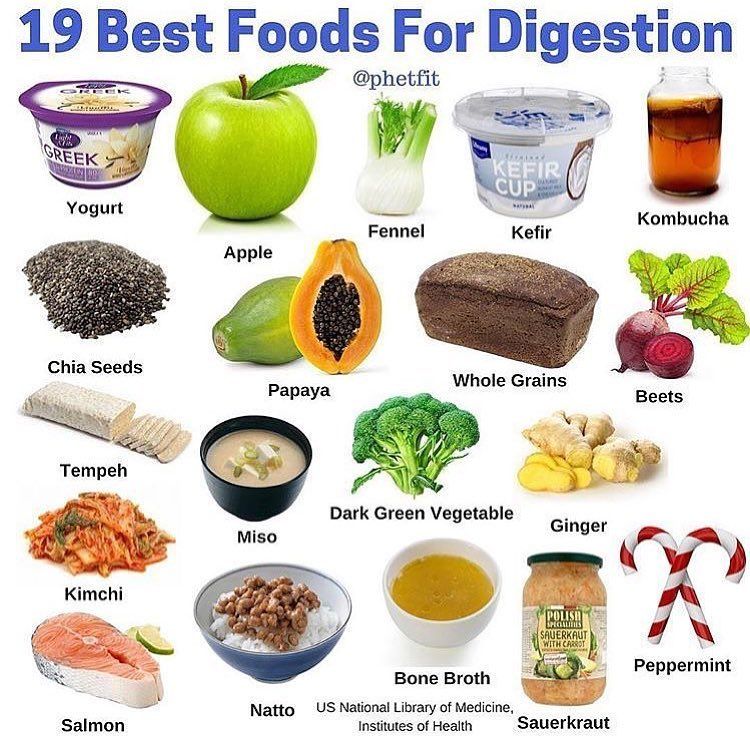 In extreme cases, the first broth should be drained by boiling the meat for 20-30 minutes. Soup is better to cook without frying;
In extreme cases, the first broth should be drained by boiling the meat for 20-30 minutes. Soup is better to cook without frying;
meat - complete, not by-products (liver, lung, kidneys, heart), it is desirable to exclude sausages, sausages, canned meat. From meat you can cook meatballs, meatballs, boil. It is advisable to fry the cutlets quite a bit, then stew; nine0003
it is recommended to alternate animal meat, poultry and fish;
it is best to avoid fatty red fish in favor of river trout and white sea fish;
milk In case of pain in the abdomen and weakening of the stool, it is advisable to drink normalized milk, with a fat content of 2.5. The same applies to cottage cheese and kefir. To prepare cereals, it is better to dilute milk with water 1: 1. If the child has had an intestinal infection, all dairy products are excluded from the diet for the duration of the illness, after which sour-milk products are gradually introduced; nine0003
cereals are allowed.